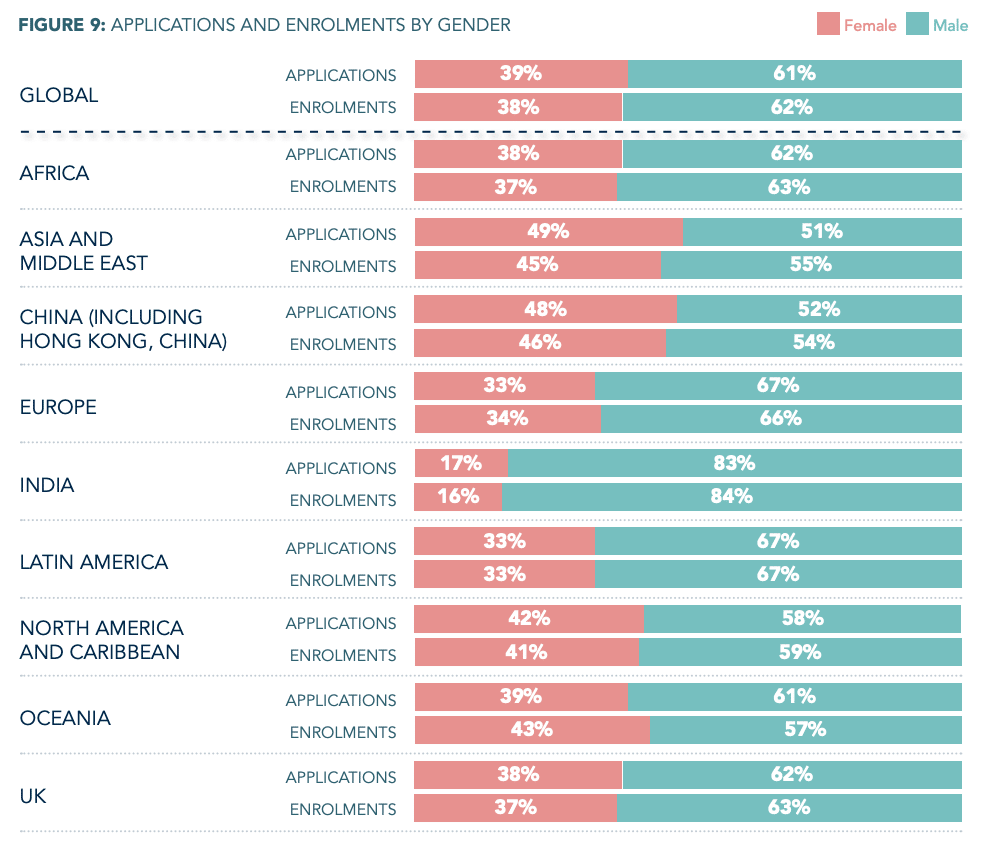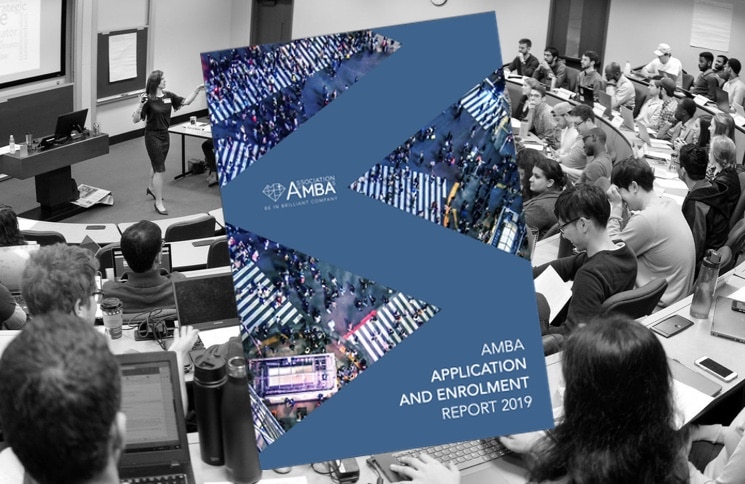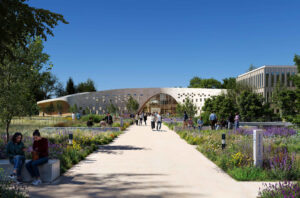Demand for MBA programmes has grown internationally at Business Schools accredited by the Association of MBAs (AMBA), with applications increasing by 9% between 2017 and 2018, new research reveals.
AMBA’s annual Application and Enrolment research, which measured the application, enrolment, diversity and graduation figures for the 2018 calendar year at 236 Business Schools (232 of which offered MBA programmes) and compared the figures for 202 identical accredited Business Schools between 2017 and 2018.
Four Australian business schools are accredited AMBA, including Flinders University, Monash Business School, QUT Graduate School of Business and University of Sydney Business School.
The study found that School enrolment figures in the sample of Business Schools had increased by 10% year on year, and the proportion of women being enrolled onto MBA programmes had increased by one percentage point to 37%, across the world.
Association of MBAs CEO Andrew Main Wilson said the report provides insight at a time of great uncertainty in the global economy and the geopolitical landscape.
“The results from this study demonstrate the continued excellence of AMBA-accredited Business Schools and their ability to expand their programmes in this ever-more demanding world,” he said.
AMBA Research and Insight Manager Will Dawes said the report showed that AMBA-accredited Schools have experienced substantial levels of growth in their MBA cohorts.
“Much of this strong performance was driven by increased demand for MBA programmes in China (including Hong Kong, China), but there was also growth in MBA cohorts in Schools across several other regions, including Europe,” he said.
“It is also encouraging to observe that the recent growth in the share of applications and enrolments among women has continued. This demonstrates that AMBA-accredited Schools are continuing to focus on more diverse and gender-balanced cohorts.”
Year-on-year comparisons between 202 AMBA-accredited Business Schools that provided their application and enrolment data in 2017 and again in 2018
Applications
Average applications for MBA programmes at AMBA-accredited Business Schools have increased between 2017 and 2018 (+9% for Business Schools and +8% by programme). This indicates that across the AMBA network globally, demand for MBAs has grown. At a School level, average applications rose from 506 in 2017 to 550 in 2018. Meanwhile, average applications to programmes increased to 144 in 2018 from 133 in 2017.
The largest increase in applications was in China (including Hong Kong, China), where applications rose on average by 29% for each Business School and by 16% at a programme level.
Enrolments
The average number of enrolments at AMBA-accredited Business Schools followed a similar growth trajectory to average applications (+10% per Schools and +9% per programme).
Gender diversity
The proportion of women applying and enrolling onto AMBA-accredited MBA programmes between 2017 and 2018 increased by one percentage point to 37%. The largest increase in applications and enrolments was in Africa (+4 percentage points for both applications and enrolments).

International applications and enrolments
The proportion of international applications and enrolments (candidates applying to a Business School outside their home country) has remained relatively steady between 2017 and 2018 (applications are unchanged, and enrolments have decreased by proportionally by 2%).
In AMBA-accredited Business Schools in Europe there was an increase in the proportion of international applications (an increase of nine percentage points to 58%) while in Oceania international applications fell (by 21 percentage points to 17%).
Programme delivery
The proportion of part-time programmes delivered at AMBA-accredited Business Schools increased between 2017 and 2018 by 5% (62% in 2018 vs. 57% in 2017). This is largely at the expense of modular programme formats (-5%), although the proportion of full-time programmes also dropped slightly, by 1%.
Analysis of 232 AMBA-accredited Business Schools that provided their MBA programme application and enrolment data for 2018
Applications
Regionally, the largest average number of applications per School and per programme was in China (including Hong Kong, China), where there were 1,367 applications per School and 398 applications per programme. The next largest average number of applications was in North America and the Caribbean (1,069 applications per School and 279 applications per programme).
Enrolments
The highest average number of enrolments was in China (including Hong Kong, China), which amounted to 438 enrolments per School and 128 enrolments per programme. At a School level the next highest averages were in North America and the Caribbean (419), Latin America (213) and the UK (179).
The global conversion rate of applications to enrolments was 37%. According to where the programme was taught, the highest conversion rates were in Latin America (54%) and in Oceania (52%), while the lowest were in India and the UK (27%).
Gender diversity
In 2018, 39% of those applying to and 38% of those enrolling onto programmes were women. Although this represents a gender imbalance, the proportion of women applying to and enrolling onto AMBA-accredited programmes has increased by approximately six percentage points in the past five years. Meanwhile, the global application to enrolment conversion rate was marginally higher for men than women (40% vs 38%).
International applications
Overseas applications and enrolments still represent a minority of overall numbers. A third (33%) of applications to AMBA-accredited programmes came from people based outside the country of the delivery institution. Meanwhile, just over a quarter (26%) of enrolments were from overseas. There was significant variation by region, with 80% of applications to UK programmes coming from overseas compared with 1% in India.
Graduations
In total, 36,537 individuals graduated from AMBA-accredited MBA programmes in 2018 compared to 35,002 in 2017. On average, at each School there were 157 MBA graduations per School and 42 per programme. Europe comprised the largest share of graduations (29%).
Programme delivery
In 2018, programmes were most likely to be delivered part-time (62%). This is followed by full time (22%) and modular programmes (16%).
More than four in five programmes (84%) were conducted through classroom-based learning. A smaller proportion of programmes were delivered in a blended setting between classroom and online (12%) or exclusively online (4%).







